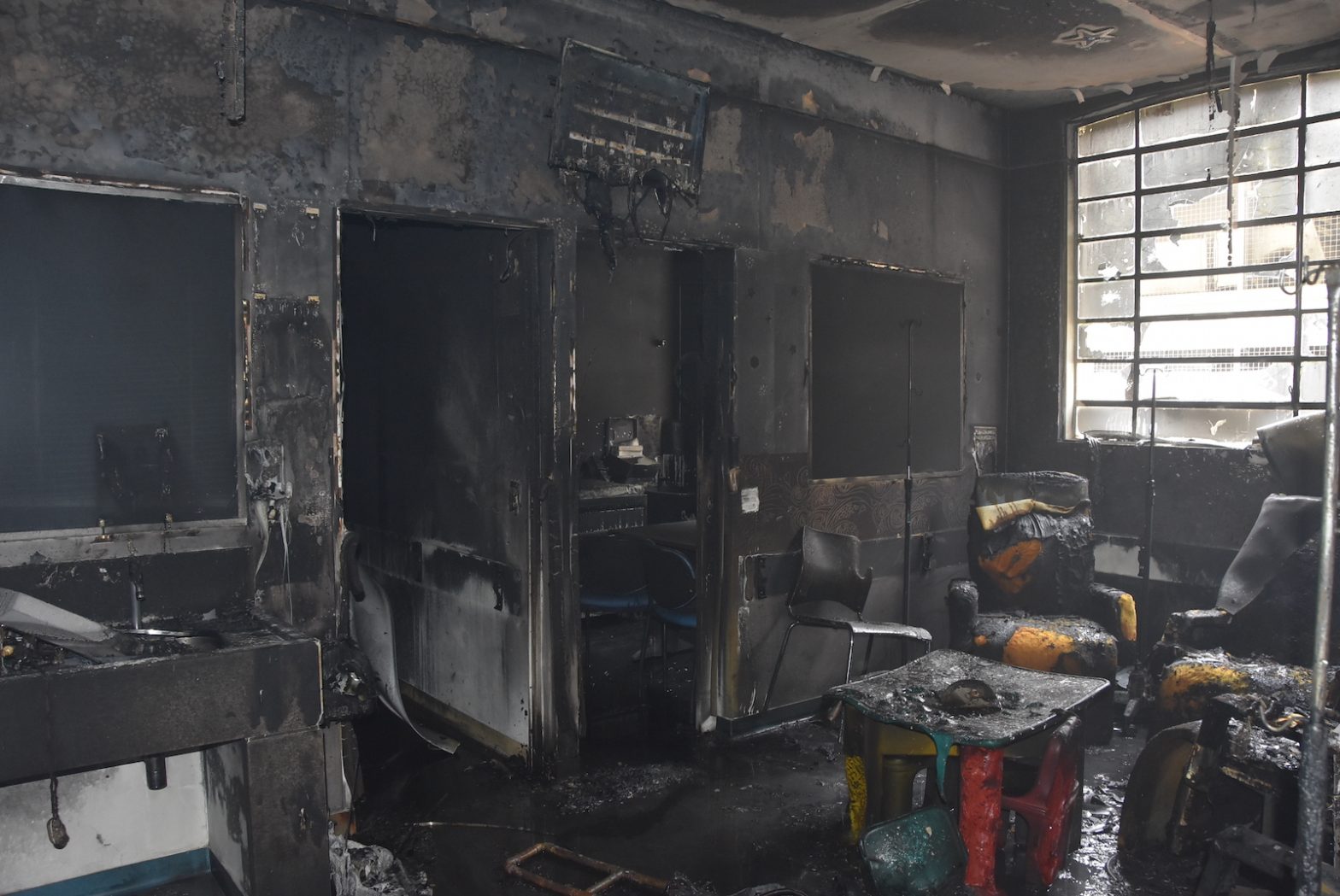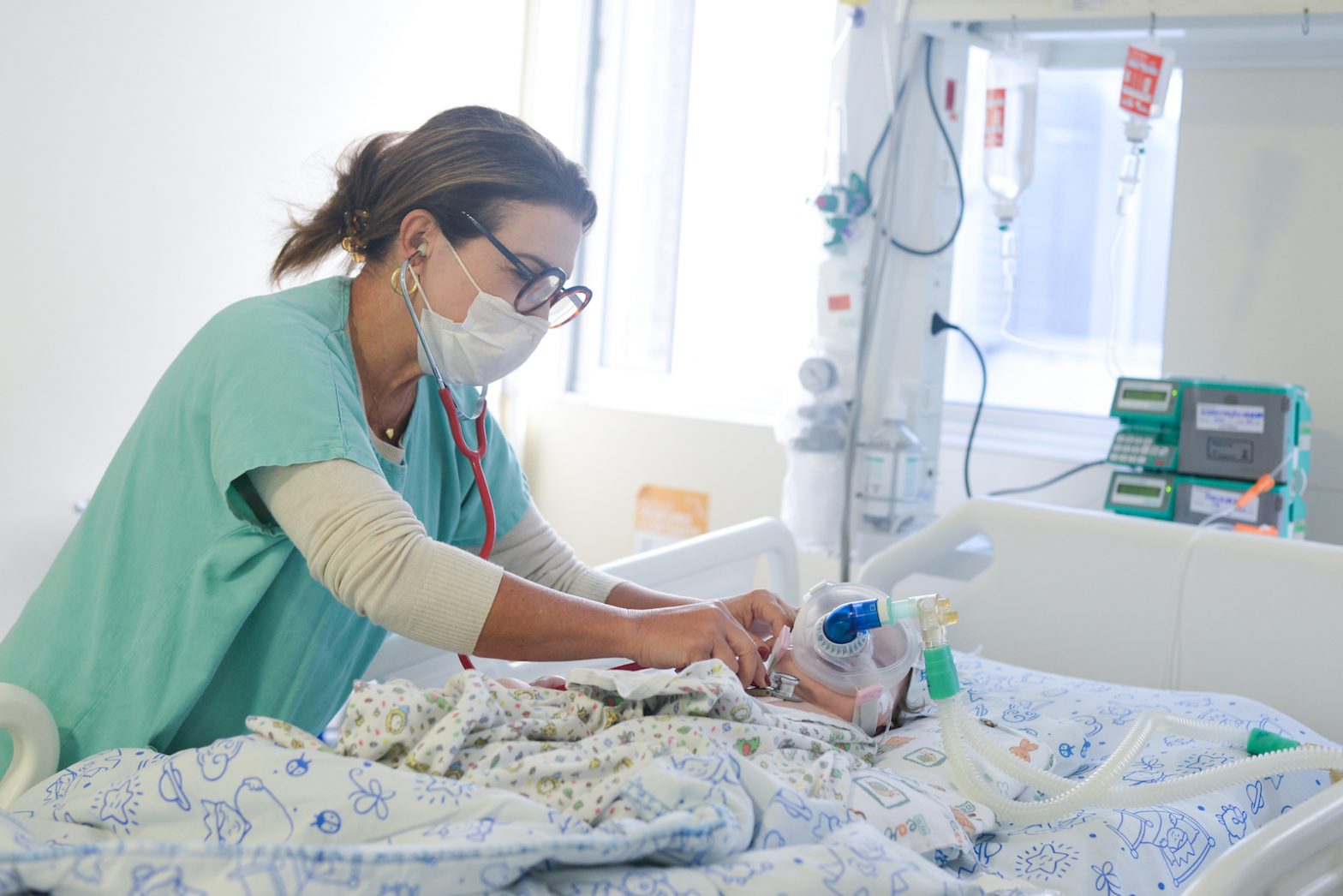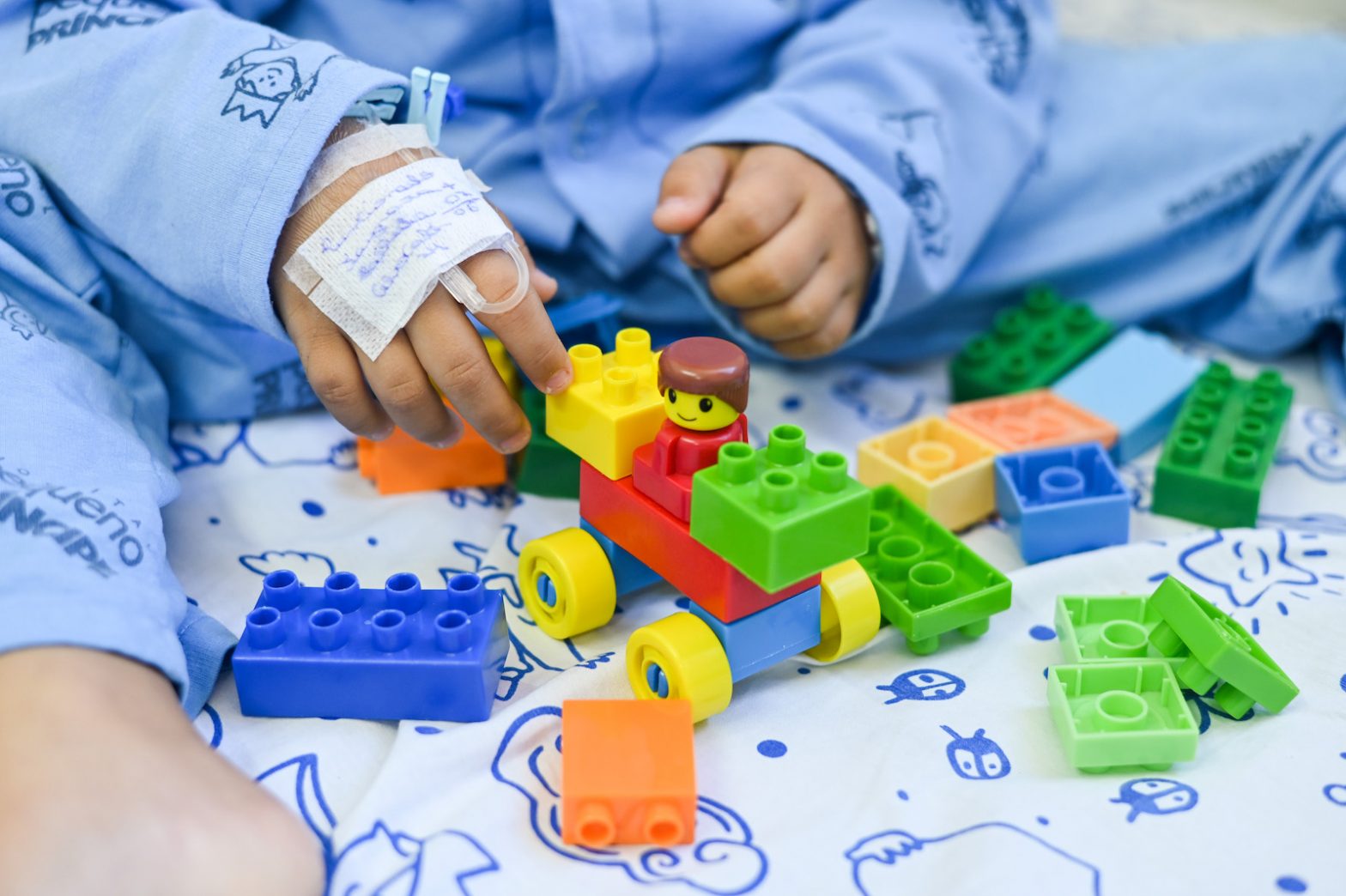First solid organ transplant performed in Pequeno Príncipe reaches its 35th anniversary
In these more than three decades, the Hospital has expanded and improved its operations, becoming an important transplant center in Brazil
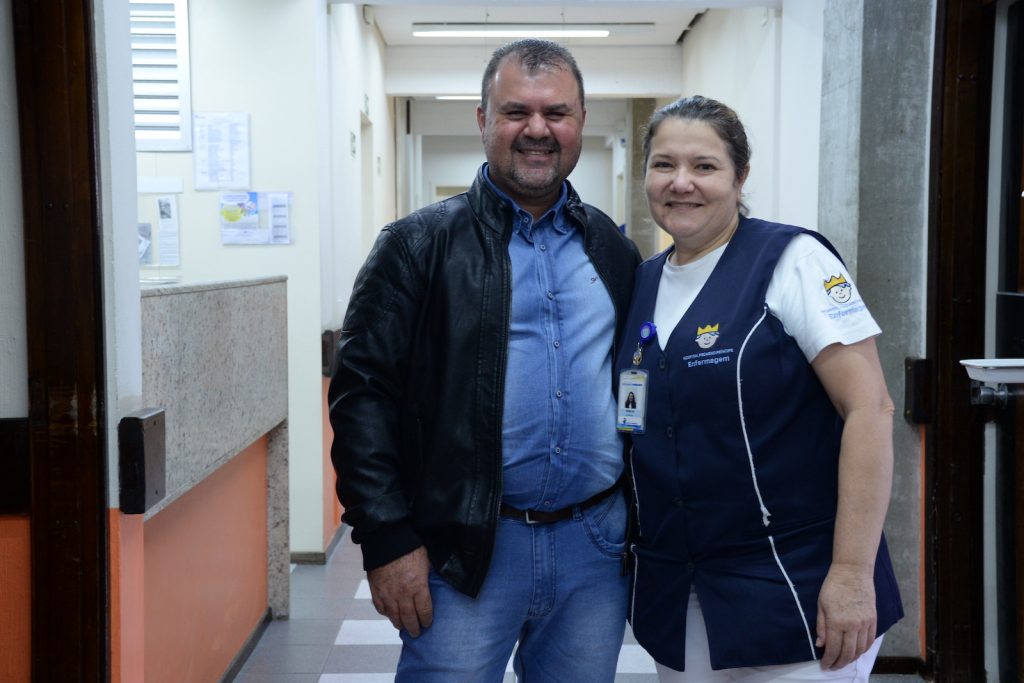
The first solid organ transplant performed at Pequeno Príncipe Hospital is celebrating its 35th anniversary in 2024. On October 11, 1989, Roni Peterson Figueiredo, then 8 years old, received a kidney donated by her mother. Today Roni is 43 years old and is a first aid driver for SAMU (Emergency Service – similar to the 911) in Cordeirópolis, in the interior of São Paulo state. He is married to Alexandra Figueiredo and has a teenage son, Gustavo. “Because I was hospitalized for a long time, I always wanted to help other people. I passed the first aid driver exam and did a lot of training. Today I actively participate in rescues and that fulfills me,” he says.
Roni had the transplant after five years of conservative kidney treatment and eight months on hemodialysis. The procedure, which marked the beginning of solid organ transplants in Pequeno Príncipe, was a success. Thirteen years later, he rejected the transplanted kidney, and Pequeno Príncipe entered his life again. There were two more years of hemodialysis, until in March 2004 he underwent a new transplant.
In these 35 years, Pequeno Príncipe has expanded and improved its operations in pediatric transplants, becoming an important transplant center in Brazil. In liver, heart, and bone marrow transplants, for example, the Hospital accounts for around 10% of pediatric procedures performed in the country, according to data for 2022 made available by the Brazilian Association of Organ Transplantation (national data for 2023 has not yet been disclosed).
In 2023 alone, 307 transplants were performed at Pequeno Príncipe, the highest number ever recorded in a single year in the institution’s history.
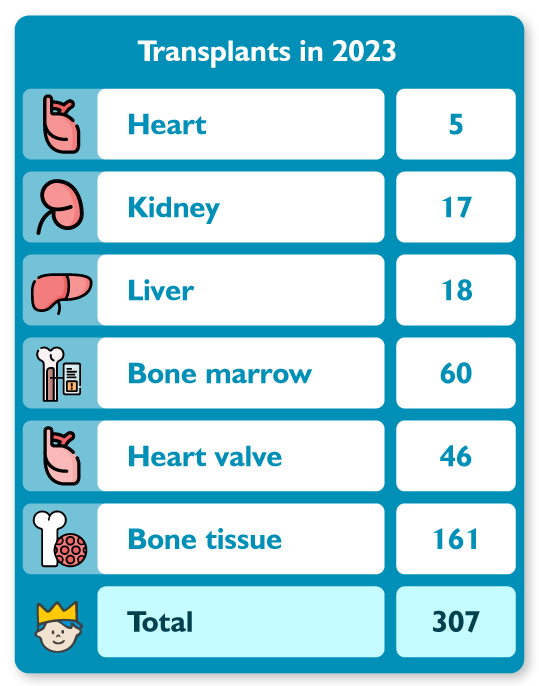
For Roni, organ donation is synonymous with new life. “Donating an organ is a very difficult decision, but families should think that it is an act that can prolong the lives of many people. In my case, the one who saved me was a little angel aged 4 years and 9 months, after a very difficult decision by his parents, but very wise, which gave me the opportunity to lead a normal life today,” he highlights.
Kidney diseases
Roni’s story could have been different if the diagnosis of chronic kidney disease had been made early. Before he was 1 year old, he urinated blood, but it was only when he was 3 years old that he was diagnosed with a kidney problem and referred to specialists at Pequeno Príncipe.
The month of March is dedicated to raising the awareness around kidney care, as chronic kidney disease (CKD) affects more than ten million people in Brazil, according to the Ministry of Health. The Brazilian Society of Nephrology estimates that, by 2040, CKD will be the fifth leading cause of death in the world.
CKD is characterized by persistent changes in kidney function for a period of more than three months and is divided into stages. If kidney function reaches less than 10%, there is a need for some type of treatment to replace kidney function, which may be peritoneal dialysis, hemodialysis or kidney transplantation.
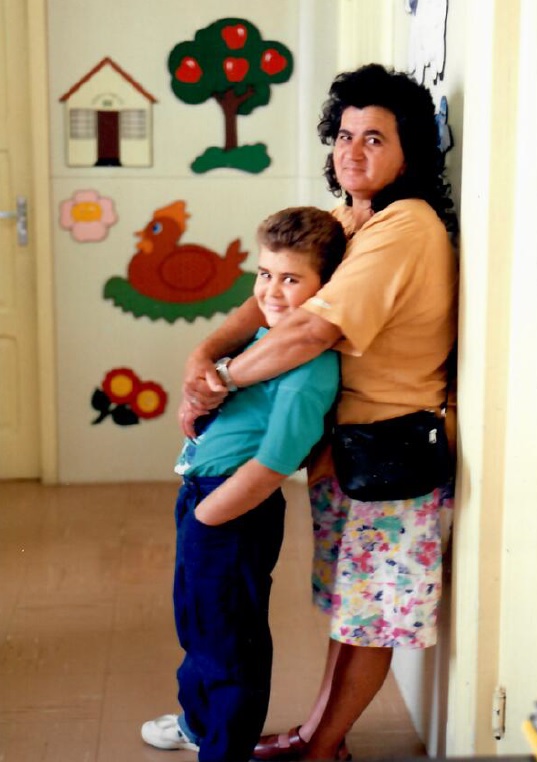
Although it is more common in adults, when CKD affects children it can have serious consequences, which requires continuous care. “Not every cause of the kidney chronic disease is preventable. In this way, what we do is slow down its evolution. Depending on the case, there is a need for surgical intervention or periodic clinical monitoring, in addition to the adoption of healthy habits, which include diet and physical activities. Secondary causes should also be avoided, such as obesity, diabetes, and high blood pressure, which can occur in children and adolescents,” explains pediatric nephrologist Lucimary de Castro Sylvestre, from Pequeno Príncipe Hospital.
Symptoms
CKD can be silent, and the patient often only discovers they have the problem when their kidneys fail. In the case of children and adolescents, it is necessary to pay attention to the signs and symptoms, which can help in the early diagnosis of the disease, such as: recurrent urinary infections; difficulty gaining weight and/or growth; persistent anemia without apparent causes; swelling; bone problems; and difficulty, pain and/or burning when urinating.
Nephrology Service
The Nephrology Service at Pequeno Príncipe Hospital is one of the most complete in Brazil in pediatrics and offers all treatment modalities for chronic kidney disease. For almost 40 years, the institution has provided outpatient and hospital care to children and adolescents aged up to 18 years, in addition to offering hemodialysis, peritoneal dialysis, and kidney transplant services. Patients also have access to a general nephrology outpatient clinic and specialized outpatient clinics. They also have a multiprofessional team made up of doctors, nurses, psychologists, physiotherapists, nutritionists, and social workers, and a complete structure to carry out all exams in one place.
More
Reconstruction of the Oncology, Hematology, and BMT Outpatient Clinic will begin in March
Premises were destroyed in a fire that occurred in October 2023; work is estimated to last four months
Law sanctioned in January provides for annual readjustment of services provided by the SUS (Brazilian Public Health System)
Historic achievement minimizes delay in transfers to philanthropic hospitals, such as Pequeno Príncipe
Agenda in favor of children’s rights has opportunities to be strengthened in 2024
New terms in guardianship councils, municipal elections, and changes to the Brazilian Child and Adolescent Statute (ECA) are possibilities to face a challenging scenario


